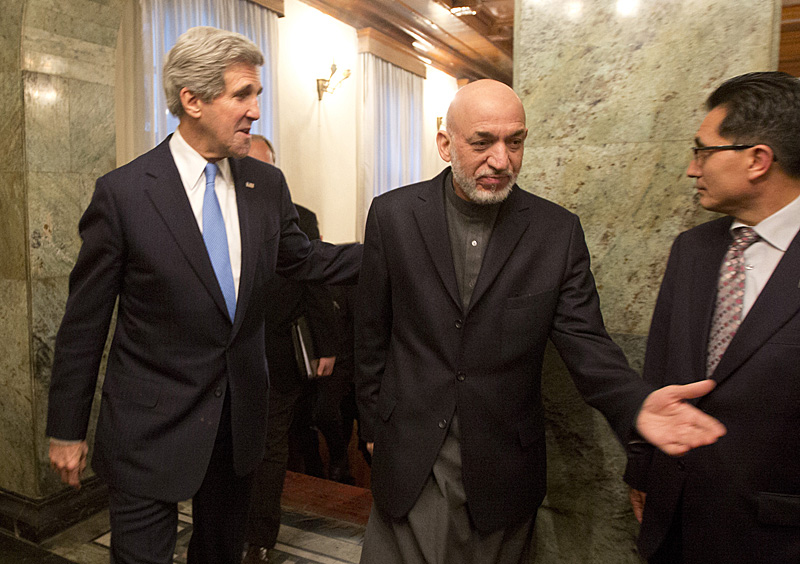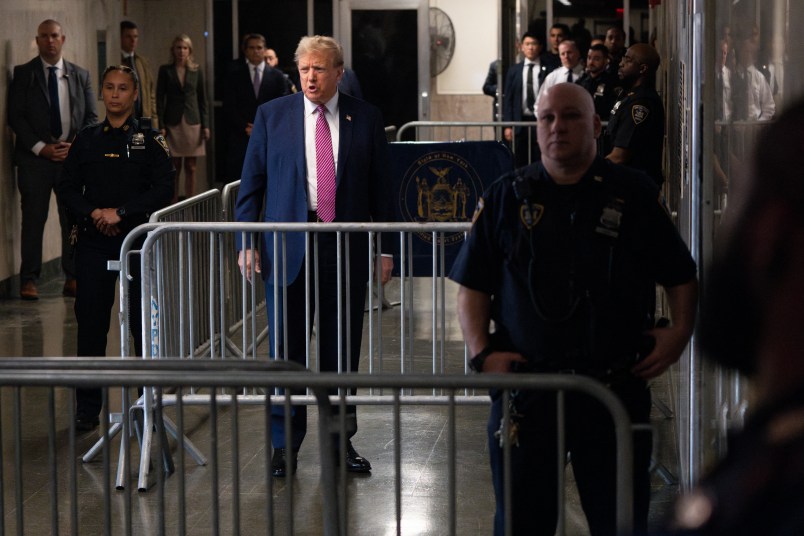KABUL, Afghanistan (AP) — The U.S. wants to keep nine bases in Afghanistan after American combat troops withdraw in 2014 and the Afghan government will let them as long as it gets “security and economic guarantees,” President Hamid Karzai said Thursday in his first public offer in talks about the future relationship between the two uneasy allies.
U.S. officials have made no final announcement about how many troops might remain in Afghanistan after 2014, although they have said as many as many as 12,000 U.S. and coalition forces could remain to train and advise Afghans and continue counterterrorism operations against al-Qaida and other extremists.
The Afghan government would have to approve any such decision, but months of negotiations over a bilateral security agreement have been troubled with disagreements over handing over detainees and anger over alleged misbehavior by American troops.
Karzai has made many statements about the issue but gave his first specific statement about bases at a ceremony at Kabul University.
“We are giving the bases, nine bases they want from Afghanistan in all of Afghanistan,” he said.
But in return, Afghanistan wants a U.S. commitment to boost its security, strengthen its armed forces and promise long-term economic development.
“It is our condition that they bring security and bring it quickly and strengthen the Afghan forces and the economy,” he said. “When they (the U.S.) do this, we are ready to sign” a partnership agreement.
U.S. Embassy spokesman in Kabul, David Snepp, declined to discuss details of the agreement, citing a policy of not commenting on specifics during the ongoing negotiations.
“However, as President Obama has stated, the U.S. does not seek permanent military bases in Afghanistan. We envision that the BSA (Bilateral Strategic Agreement) will address access to and use of Afghan facilities by U.S. forces in the future,” he said.
Karzai did not refer to “existing” bases in his comments, saying only that the U.S. has requested nine bases in the country.
A senior U.S. official familiar with the talks told The Associated Press earlier that the U.S. and Karzai are at odds over his request that the United States guarantee it would side with Afghanistan if neighboring Pakistan poses a threat. So far the U.S. is refusing, the official said, speaking on condition of anonymity because he was not authorized to brief reporters.
The negotiations over a strategic agreement have been protracted and at times acrimonious, reflecting Washington’s relationship with Karzai, who has often had strong words of criticism for Washington. In March, when it appeared that the agreement was about to be signed, Karzai made a statement that suggested that the United States and the Taliban were benefiting each other and even in collusion to keep U.S. troops in the country, though the U.S. has been fighting Taliban insurgents in Afghanistan for two decades.
As a result, the U.S. put the agreement on hold.
Some Afghans who are familiar with the Afghan president that his tough talk is a negotiating ploy to get more from the United States, particularly in relation to neighboring Pakistan. Tensions between the two countries have escalated dramatically in the last two weeks, with both sides accusing each other of unprovoked attacks.
During his speech marking the 80th anniversary of Kabul University, Karzai warned Pakistan against sending its forces across the border or trying to force Afghanistan to accept the disputed Durand partition line — the 19th century demarcation between present day Afghanistan and Pakistan — as the international border.
“We want a civilized relationship with Pakistan but if any neighbor wants Afghanistan under its shadow … it is not possible,” said Karzai. “If there is any attack or any violation to force Afghanistan to accept the Durand Line, the Afghan nation will never accept it and will never recognize the Durand Line. Impossible.”
____
Kathy Gannon is AP Special Regional Correspondent for Afghanistan. Follow her at www.twitter.com/kathygannon
Copyright 2013 The Associated Press.










